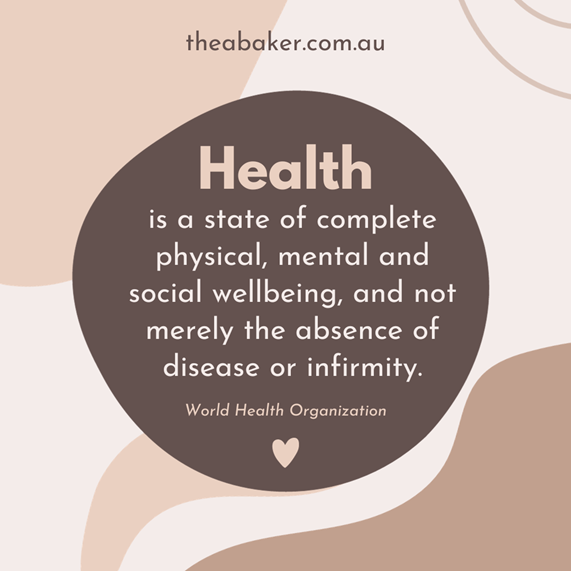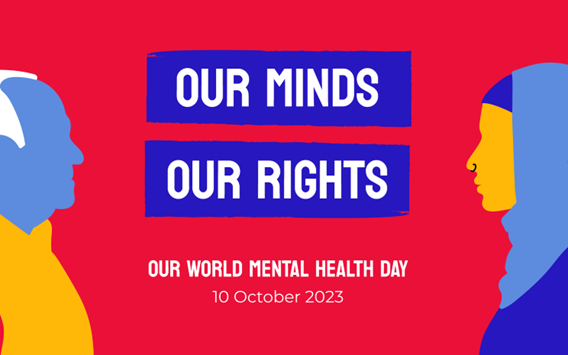(Good) mental health is a universal human right
(Good) mental health is a universal human right
In case you don’t know too much about me at my heart I’m a research nerd who has a fairly insatiable curiosity for all sorts of things. At present that nerdiness is largely focused on a PhD at Deakin University where I’m looking at the role that moderate-vigorous physical activity (in the form of cardio-boxing) can play in supporting women who have experienced intimate partner violence. It is very much a part of my career-focus of supporting ‘whole-person’ health, recognising that mental health and physical health are inextricably linked. I believe that when we see people in their wholeness, we recognise that thinly slicing one aspect, condition or disease and treating that in isolation, without recognition of its impact on the rest of our system often fails to bring about lasting good health and recovery.

The role that mental health plays within the context of ‘whole-person’ health has, in recent years, become better understood and recognised:
- Depression is one the leading causes of disability globally
- Suicide is the fourth leading cause of death among 15-29 year olds
- People with severe mental health conditions die up to 20 years prematurely due to preventable physical conditions
In 2022, the World Health Organization launching their report, ‘Transforming mental health for all’ and this year’s World Mental Health Day (10th October) has a focus on encouraging (good) mental health as being a universal human right.
The reasons that people with poor mental health are more likely to experience poor physical health is quite complex and multi-factorial. Within Australia (where I’m writing from) research suggests the following mix of factors where people with poor mental health have:
- Greater exposure to risk factors for physical disease like socioeconomic status, smoking, poor nutrition, lower rates of physical activity and higher rates of sedentary behaviour
- Reduced access to quality healthcare due to financial barriers, stigma and discrimination amongst healthcare providers
- Systemic issues in healthcare delivery – including a separation of mental and physical health services
- Adverse effects of some psychotropic medications that can increase risk of obesity, diabetes and cardiovascular disease
- Impact of prescribing multiple medications / prescription practices
- Lack of capability for healthcare providers (both generalists and specialists) to treat whole-person health (i.e., mental health staff lack skills, training and confidence to treat physical conditions and vice versa)
One of the big gaps that I see with these data is firstly related to the engrained stigma that still exists with people who have poor mental health, and also the systemic challenge that comes with the lasting effect of seeing physical health conditions and something separate to (and in some cases still unrelated to) mental health – despite all the research and evidence to the contrary!
Supporting your own whole-person health
As delightfully multidimensional entities we need to attend to all aspects of our health and wellbeing. That can look like practical steps such as:
- Taking care of our physical needs – eating well, moving our bodies (this can take so many different forms and has NOTHING to do with how we look) and getting rest
- If supplements are your thing, go there with things like vitamin C, D, magnesium etc. if your body is in need
- Drinking water more than all the other things (tea, coffee, alcohol etc.)
- Spending time in connection with other (safe) humans
- Seeking out support – we are not designed to do it all alone
- Doing things that give us purpose or provide us opportunities to be in flow (it can look like a spiritual practice, meditation, journaling or knitting!)
- Be an informed consumer of healthcare – do research and work with people who support the whole-person or are collaborative and supportive in working with other experts that make sure that any gaps they have in their learning/training is covered.

If you’d like to explore your own whole-person health and would like a safe space to talk please get in touch with us: www.theabaker.com.au / hello@theabaker.com.au / 03 9077 8194.
